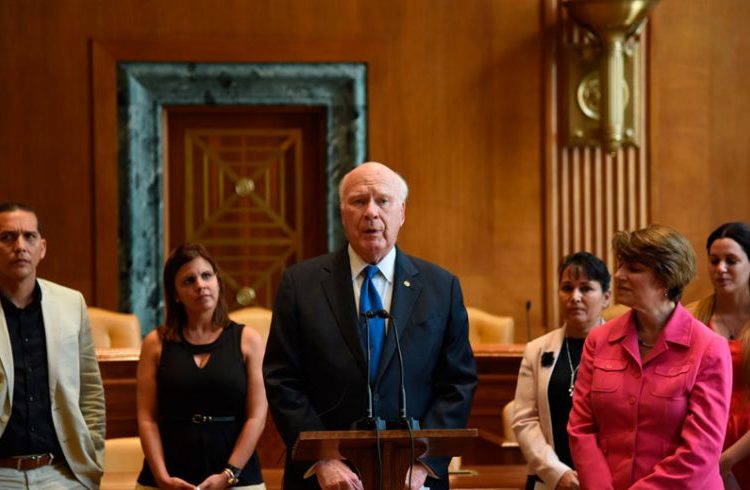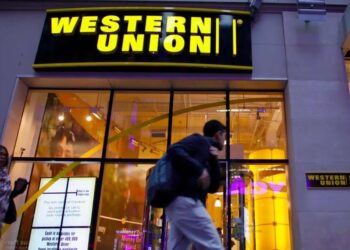Eight Cuban private entrepreneurs, gathered yesterday in Washington, sent recommendations to the Trump administration. In the context of the harshening of the administration’s policies toward Cuba, these representatives of the emerging Cuban private sector sent a letter to the Department of State, of the Treasury and of Commerce.
In their message, they identify specific ways in which the new regulations can harm policies that favor the Cuban private sector while expressing their concern about a rollback in the rapprochement in general.
Their hosts were Senators Patrick Leahy (D-Vermont.), Amy Klobuchar (D-Minnesota) and Jeff Flake (R-Arizona).
President Trump’s National Security Presidential Memorandum on Strengthening the Policy of the United States toward Cuba mentions the need to support the nascent Cuban private sector as key in the regulatory changes toward Cuba. However, most of the owners of private enterprises on the island have shown their concern in the face of the possibility that hostile measures will dissuade Americans from traveling to Cuba, which would affect their incomes.
In order to support the private sector they represent, the group recommends to the lawmakers to continue allowing individual trips to Cuba, to allow that the private sector have access to goods and remittances, greater flexibility for Cubans wishing to open accounts in U.S. banks and maintaining the talks and cooperation with the Cuban government and other entities.
“Most Cuban entrepreneurs view improved relations between the U.S. and Cuba as a net positive for their businesses, and many developed their business model on this premise,” the Cuban entrepreneurs wrote.
“If President Trump is serious about helping Cuba’s private sector, he will listen to Cuban entrepreneurs. Today, they are telling him that additional regulations on Americans who wish to travel to Cuba will harm their businesses and harm Cuba’s private sector,” said President of the Engage Cuba coalition, James Williams.
“Americans are staying in private B&Bs, eating at private restaurants, and taking private taxi cabs,” Williams added.
“Cuba’s entrepreneurs are eager to share how U.S. policy can best support them and their businesses, and I am glad they are in Washington at this important moment to share their stories. The past two years have shown that engagement between the U.S. and Cuba is positive for people in both our countries, especially entrepreneurs on the island,” said Emily Mendrala, Executive Director of Center for Democracy in the Americas, cited by Engage Cuba.
“President Trump’s new policy has created confusion and fear among U.S. travelers and Cuban entrepreneurs,” said Collin Laverty, President of Cuba Educational Travel.
In May 2017, a survey showed that American travelers overwhelmingly support Cuba’s growing private sector. According to the survey, 76 percent of U.S. travelers stayed in private B&Bs while virtually all of those surveyed ate at privately-owned restaurants or paladares.
According to Cuban economist Pedro Moreal, “Cuba’s private entrepreneurs, directly related to tourism, can stop earning up to 21 million dollars in the second half of 2017 ‘courtesy’ of Donald Trump. If such a scenario were to materialize, approximately three quarters of the amount of incomes from the most dynamic segments of their clients would disappear in thin air. The estimate is not exact, but neither does it seem exaggerated. That is the ‘poisoned apple’ the U.S. president has presented to the emerging national private sector.”
Just a few days ago, President Raúl Castro said in his closing address to the first of the two annual plenary sessions of the National Assembly of Powers that the functioning of self-employment and the non-agricultural cooperatives “will not back down or stop.”
The number of Cuban citizens working in the private sector – specifically in its modality of self-employment – had increased in the close of 2016 to a total of 535,000 persons (approximately 11 percent of total employment),” Moreal specified,
THE SIGNATORIES
Nidialys Acosta and Julio Álvarez, Co-founders of NostalgiCar, a restoration garage for classic American automobiles and upscale car service.
Robin Pedraja, founder of Vistar Magazine, a digital independent publication.
Reymel Delgado, founder of Estudio 50, an audio/visual production business in Cuba.
Niuris Higueras Martínez, founder of Atelier, one of Havana’s most successful paladares.
Celia Mendoza, founder of Concierge Habana, which provides VIP and specialized services to foreign visitors.
Julia de la Rosa, co-owner of La Rosa de Ortega B&B, listed on Airbnb.
Yamina Vicente, founder of Decorazon, a party planning and decorating business.
THE LETTER
The Honorable Rex W. Tillerson
U.S. Department of State
2201 C Street, N.W.
Washington, D.C. 20520
The Honorable Steven Terner Mnuchin
Department of the Treasury
1500 Pennsylvania Avenue, N.W.
Washington, D.C. 20220
The Honorable Wilbur Ross
U.S. Department of Commerce
1401 Constitution Ave., N.W.
Washington, D.C. 20230
July 18, 2017
Dear Secretary Tillerson, Secretary Ross, and Secretary Mnuchin:
We were encouraged to read in President Trump’s June 16 National Security Presidential Memorandum on Strengthening the Policy of the United States Toward Cuba that the President wishes to encourage the growth of the Cuban private sector. To this end, we traveled to Washington, D.C. to present the attached recommendations to U.S. policymakers outlining ways U.S. policy can support Cuba’s private sector.
First, we recommend policymakers allow U.S. travelers to continue to travel as individuals to Cuba. U.S. travel to Cuba directly benefits private entrepreneurs and their families. The vast majority of U.S. individual travelers (vs. groups) frequent private lodging, restaurants and transportation services. Fewer travelers will have a direct negative impact on businesses in the hospitality sector as well an indirect negative impact on connected enterprises.
Second, we encourage U.S. policy to allow Cuba’s private sector access to goods and remittances. Remittances are essential to Cuba’s private sector, providing the financing to begin, and the working capital to sustain, businesses. Remittances also provide Cuban consumers with the ability to patronize private businesses. A U.S. policy of not restricting remittances is therefore critical to the health of the private sector.
Third, we recommend greater flexibility for Cubans wishing to open bank accounts in the United States. Many Cuban entrepreneurs purchase goods and services in the United States to help run their businesses. Cubans are legally permitted to open bank accounts in the U.S., but there are restrictions on the allowable transactions, and limited and uncertain account services, impairing businesses in both countries.
Finally, we urge the U.S. to continue dialogue and cooperation with the Cuban government and other Cuban entities. Most Cuban entrepreneurs view improved relations between the U.S. and Cuba as a net positive for their businesses, and many developed their business model on this premise.
Sincerely,
Nidialys Acosta; Nostalgicar
Julio Alvarez; Nostalgicar
Julia de la Rosa; La Rosa de Ortega B&B
Reymel Delgado; Estudio 50
Niuris Higueras; Atelier Restaurant
Celia Mendoza; Concierge Habana
Robin Pedraja; Vistar Magazine
Yamina Vicente; Decorazón Event Planning










